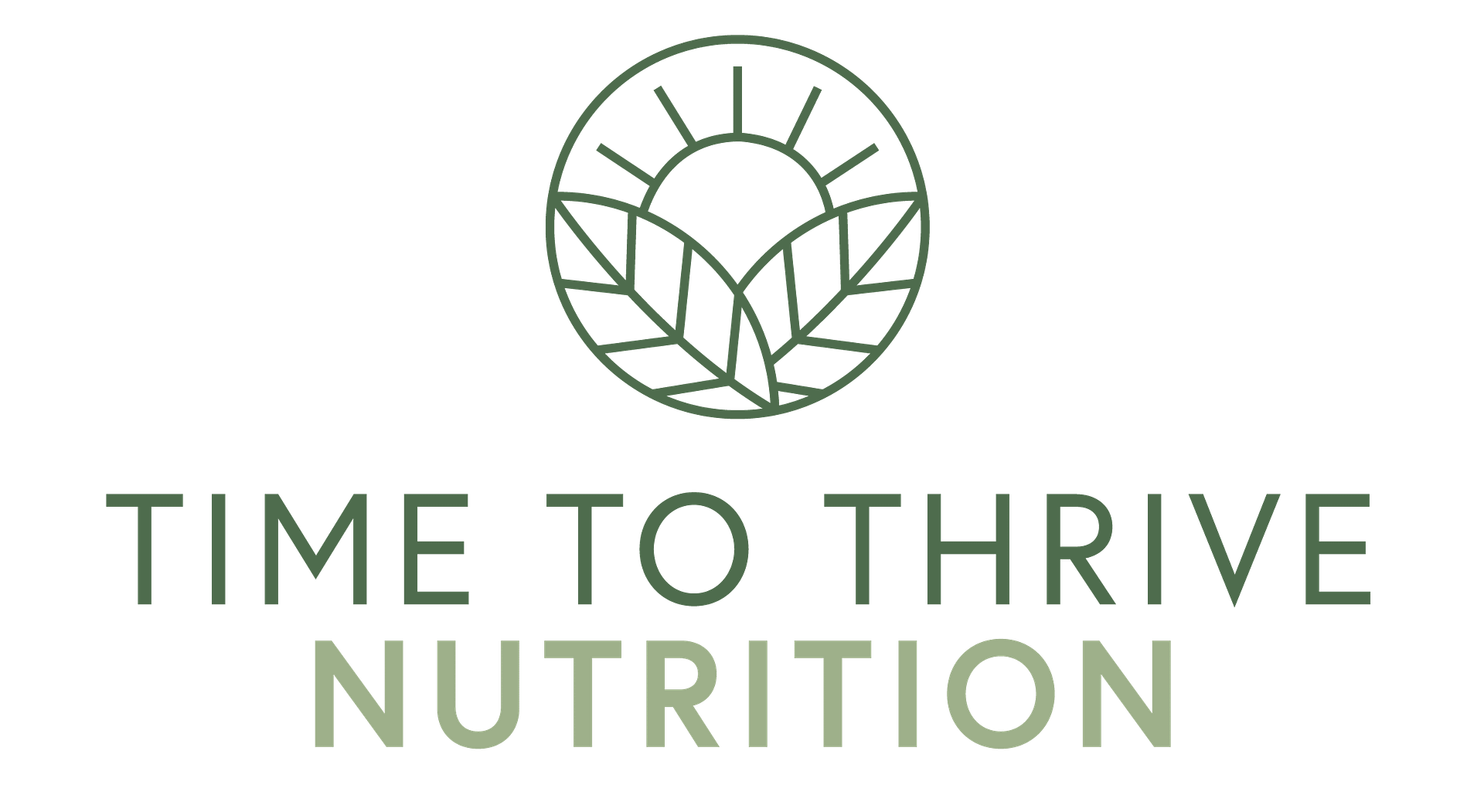In our July newsletter, we offered a space to share any questions you may have for Holly, a registered dietitian from Time to Thrive Nutrition. Below are her responses.
1. How much water should I drink each day?
A general guideline is to drink about eight glasses (64 ounces) or half your weight in ounces of water a day. For example, if you weigh 150 pounds, aim to drink at least 75 ounces of water per day. This is a starting point, and individual needs will vary based on factors like age, gender, activity level and climate.
2. Are carbohydrates bad for you?
Carbohydrates are not inherently bad. They are our primary source of energy. It’s important to choose complex carbohydrates like whole grains, fruits and vegetables over refined carbs and sugars.
3. What are good sources of healthy fat?
Healthy fats can be found in foods like avocados, nuts, seeds, olive oil, fatty fish (like salmon) and flaxseeds. These fats are beneficial for heart health and overall well-being.
4. What is the role of fiber in the diet?
Fiber aids in digestion, helps maintain bowel health, lowers cholesterol levels and can help control blood sugar levels. It also helps you feel full, which can assist in weight management. Good sources include fruits, vegetables, whole grains and legumes.
5. Are organic foods healthier?
Organic foods are grown without synthetic pesticides or fertilizers, but they are not necessarily more nutritious than conventionally grown foods. The choice to eat organic is often based on personal preference and environmental concerns.
6. I hear so much about fasting. Is it a good idea to fast for 16 hours or should I stick with having a healthy breakfast?
Breakfast is an important meal, so if you like your breakfast, continue to enjoy it! Aim to have a balanced meal including protein (e.g., eggs, yogurt), healthy fats (e.g., avocados, nuts) and whole grains (e.g., oats, whole grain toast). You are already fasting overnight while you sleep! I’d be more curious to know/understand why you feel you need to fast further. For example, would having a specific time frame help you to be more conscious of what you’re eating? Your body needs food for fuel and proper function, so fasting for extended periods of time without consulting a registered dietician and doing it safely can be dangerous.
7. Which is better: full-fat dairy or low-fat/non-fat dairy and why? Don’t they just remove the fat and add in extra sugar? Isn’t removing the fat also removing the nutrients you’re aiming to consume when consuming dairy?
It depends on the product. Sometimes manufacturers add sugar, but not always — so read nutrition labels and ingredient lists! It’s important to have healthy fats in our diet for hormone health and fat-soluble vitamin absorption. Depending on your health history, family health history, or preferences, you may want to choose plant fats like nuts and seeds versus animal fat or low-fat options if you have high cholesterol. When consuming an all-in-one snack/meal, stick with full fat; essentially make sure there is some sort of healthy fat in every meal!
8. Which is better — brown rice or white rice?
Brown rice just contains more fiber than white rice, which can slow down absorption and lead to fewer blood sugar spikes. If you need more fiber, then choose brown rice. You can also choose other ancient grains instead of white rice, which will provide more fiber.
9. I’m struggling with healthy snack options. Can you give me a few of your favorites?
Choose a protein and produce for a balanced snack!
- Apple and peanut/nut butter
- Hummus and carrots
- Cheese stick and grapes
- Roasted bean snacks; I love the brand Bada Bean Bada Boom paired with a fruit or veggie
- Clementines and nuts/seeds
10. I’m struggling with healthy breakfast options. Can you give me a few of your favorites?
- Overnight oats
- Egg muffins
- Smoothies
- Nut butter toast with fruit
- Chia pudding with fruit
- Baked oatmeal
11. Can you explain the importance of food pairing? For example, pairing a carbohydrate with a protein and/or fat?
Food pairing is eating more than one macronutrient paired together at a time — consuming a healthy fat, carbohydrate and protein altogether, rather than having a carbohydrate on its own. An example would be whole wheat toast with peanut butter and sliced banana versus having whole wheat toast on its own. Let your foods have a buddy! Food pairing and allowing your carbs to have a protein and/or fat “buddy” helps to blunt the blood sugar response and helps you stay full for longer. This is because protein and fat digest slower than carbs.
12. What do you think is the most valuable nutrition tip you can give to a client?
Eat more fruits and vegetables and try to cook at home as much as possible!
13. Is it true that eating too few calories could hurt my goal of losing weight?
Yes, because your body goes on eco mode, learns to run on very low calories and plateaus. You may lose water weight at the beginning, but then your weight loss stalls. You are also not getting all the micronutrients your body needs when you aren’t eating enough calories.
by Alexandra Bollinger


Most Commented